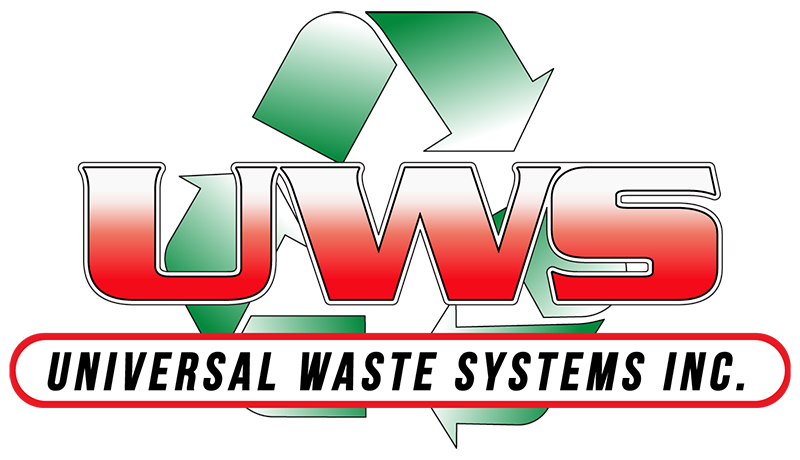Blog
Effective Solutions for Streamlined Trash Pickup: Insights from the Waste Management Industry
The efficiency of Trash Pickup services is increasingly becoming a focal point for municipalities and waste management companies alike, especially given the growing challenges of urbanization and environmental sustainability. According to the Environmental Protection Agency, the United States generates over 292.4 million tons of trash annually, which equates to roughly 4.9 pounds of waste per person per day. As the demand for effective refuse removal intensifies, innovative solutions and strategies are essential to streamline operations and reduce operational costs. Reports indicate that implementing technology-driven approaches, such as smart waste bins and data analytics, can improve the efficiency of Trash Pickup by up to 30%. This guide explores actionable insights and proven methods from the waste management industry, aimed at enhancing Trash Pickup processes to meet the needs of increasingly populated areas while also addressing environmental concerns.

Innovative Technologies Transforming Trash Pickup Efficiency
Innovative technologies are revolutionizing the waste management industry, making trash pickup not only more efficient but also more environmentally friendly. From advanced routing software to smart bins that communicate fill levels, these innovations are addressing common pain points in waste collection. For instance, GPS-enabled routing systems optimize collection routes, reducing fuel consumption and improving overall responsiveness. As a result, waste management companies can minimize operational costs while ensuring timely pickups.
Moreover, the introduction of sensor-equipped bins is transforming how municipalities manage waste. These smart bins alert waste collectors when they are nearing capacity, allowing for a just-in-time collection approach. This not only reduces overflow issues but also enhances recycling efforts by ensuring that materials are collected and processed efficiently. With the growing emphasis on sustainability, the integration of technology into trash pickup processes signifies a significant step toward smarter, greener cities that prioritize responsible waste management.
Effective Solutions for Streamlined Trash Pickup: Insights from the Waste Management Industry
| Technology | Description | Impact on Efficiency | Estimated Cost Savings (%) |
|---|---|---|---|
| Automated Waste Collection | Use of robotic systems for efficient waste collection and sorting. | Increases collection speed and reduces labor costs. | 20-30% |
| Smart Bins | Bins equipped with sensors to monitor fullness and optimize pickup routes. | Reduces unnecessary pickups and fuel consumption. | 15-25% |
| Data Analytics | Analysis of waste collection data to improve schedules and routes. | Enhances operational efficiency by 10-20%. | 10-15% |
| Vehicle GPS Tracking | Real-time tracking of collection vehicles to minimize idle time. | Optimizes routes leading to quicker collection times. | 5-10% |
| Waste Sorting Technology | Advanced sorting systems that separate recyclables from waste automatically. | Improves recycling rates and reduces landfill costs. | 15-20% |
Best Practices for Optimizing Waste Collection Routes
In the evolving landscape of waste management, optimizing collection routes is crucial for enhancing operational efficiency and reducing environmental impact. According to a report by the Environmental Protection Agency (EPA), approximately 30% of waste collection costs stem from inefficient routing. By utilizing route optimization software, waste management companies can minimize driving distances, decrease fuel consumption, and bolster team productivity. Studies indicate that implementing such technologies can result in a 15-20% reduction in operational costs.
Best practices for optimizing waste collection routes include data-driven decision-making and real-time adjustments based on traffic patterns. A survey by Waste Dive found that 78% of waste management companies are investing in integrated technology systems to streamline their operations. Leveraging Geographic Information Systems (GIS) can further enhance route planning by integrating data on population density, historical collection data, and service demand. These methods not only improve customer satisfaction through timely pickups but also contribute significantly to sustainable waste management efforts by limiting greenhouse gas emissions associated with transportation.

Data-Driven Insights for Improving Waste Management Services
In the quest for more efficient waste management services, data-driven insights are proving to be invaluable. By leveraging advanced analytics, waste management companies can better understand patterns in waste generation and streamline their operations accordingly. For instance, monitoring curbside pickup volumes can identify peak times, allowing for optimized route planning and resource allocation. This not only enhances service reliability but also reduces operational costs and environmental impact.
Moreover, integrating technology such as IoT sensors in waste bins can provide real-time data on fill levels, enabling a proactive rather than reactive approach to trash collection. This innovation minimizes unnecessary pickups and helps maintain cleaner neighborhoods, as bins are emptied when they reach capacity. As cities face growing waste challenges, embracing data and technology in waste management evolves from a luxury to a necessity, setting the stage for smarter, more sustainable community practices.
Effective Solutions for Streamlined Trash Pickup
Sustainable Strategies for Reducing Trash Pickup Costs
Sustainable waste management has become a crucial focus for municipalities and organizations aiming to reduce costs while enhancing efficiency in trash pickup. By adopting innovative strategies, communities can significantly lower their expenses and minimize environmental impact. One effective approach is the implementation of a comprehensive recycling program that encourages residents to sort their waste properly.
Tip: Provide clear guidelines and educational materials to help residents understand what can be recycled and the importance of participating in these programs. This not only reduces the volume of trash that requires pickup but also promotes environmental responsibility within the community.
Another cost-effective strategy is to leverage technology for optimizing pickup routes. Investing in data analytics can help waste management companies analyze waste generation patterns and adjust their schedules accordingly.
Tip: Use route optimization software to minimize fuel consumption and reduce overtime costs, ultimately leading to a more sustainable operation that can pass savings on to taxpayers. By focusing on these sustainable strategies, communities can create a more efficient waste management system while also contributing to a healthier planet.
Customer Engagement Techniques in Waste Management Services
Customer engagement in waste management services is critical for ensuring effective trash pickup and overall waste management success. Research indicates that customer satisfaction significantly influences retention, with a positive correlation between service quality and consumer loyalty. A study highlighted that businesses that prioritize service excellence can increase customer retention rates by up to 20%. By adopting innovative engagement techniques, waste management companies can transform their customer interactions, fostering a sense of community and responsibility towards waste disposal.

The introduction of digital platforms for communication and feedback is essential in enhancing customer engagement. Many municipalities have started employing mobile applications that allow residents to report service issues, receive notifications, and access educational resources on waste segregation and recycling. This proactive approach not only improves service quality but also encourages residents to participate actively in waste management initiatives. Furthermore, leveraging technologies such as artificial intelligence can streamline operations and predict waste generation patterns, thereby facilitating more efficient service delivery and a deeper connection with the community.
Related Posts
-
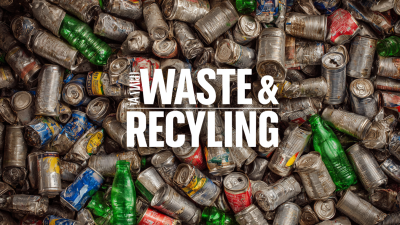
Unlocking the Best Waste And Recycling Technologies A Comprehensive Guide to Specifications and Usage
-

The Ultimate Handbook for Global Buyers: Mastering Trash Disposal Solutions
-
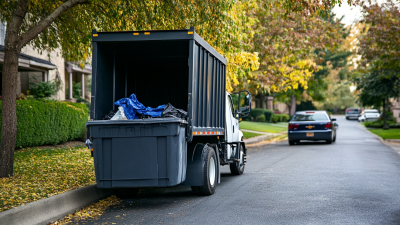
Resilient Manufacturing: How 'Best Trash Pickup' Products Thrive Amid US-China Tariff Challenges
-
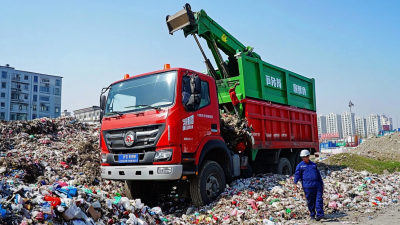
Top 10 Garbage Removal Manufacturers from China at the 137th Canton Fair
-
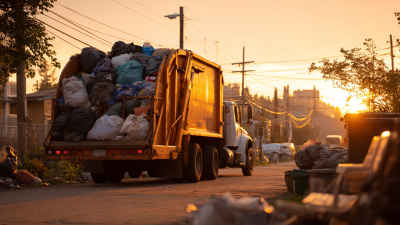
Ultimate Checklist for Finding the Best Garbage Removal Service in Your Area
-
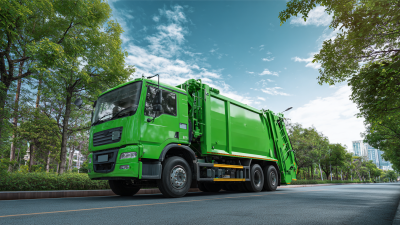
Unveiling the Technical Specifications of the Best Waste Pickup Solutions for Your Business
Request a Quote
Fill out the form below and one of our specialists will contact you to discuss your questions and needs.
